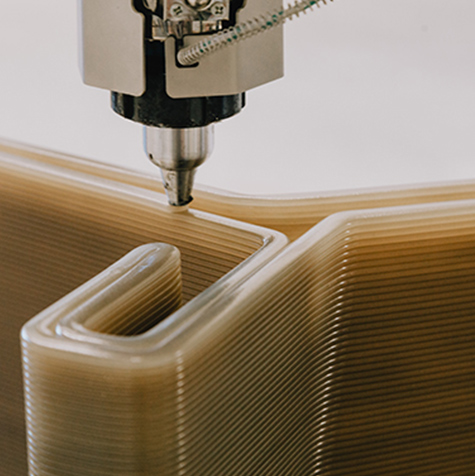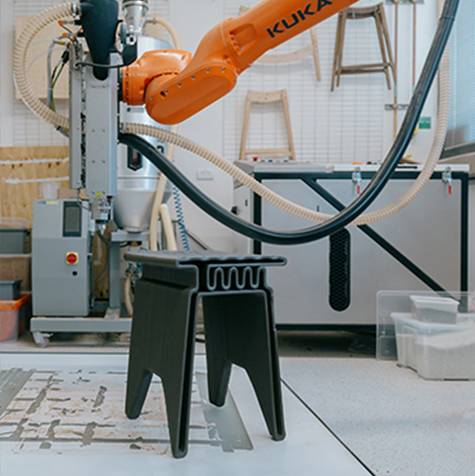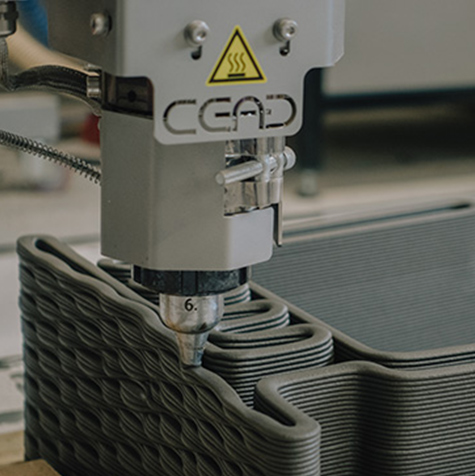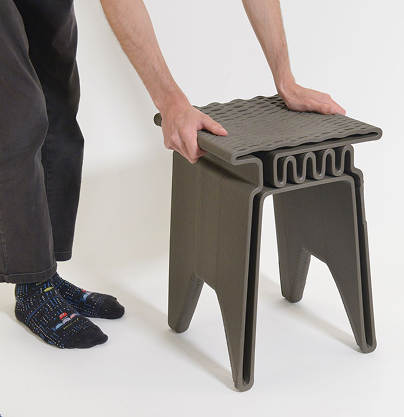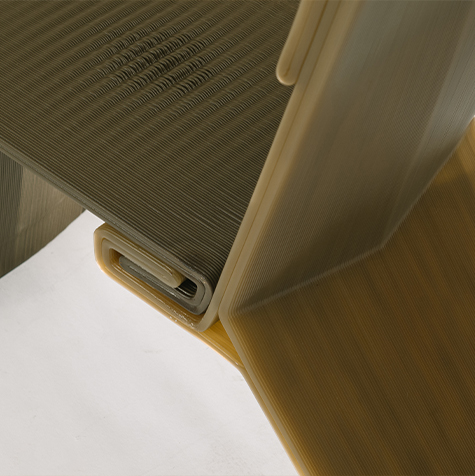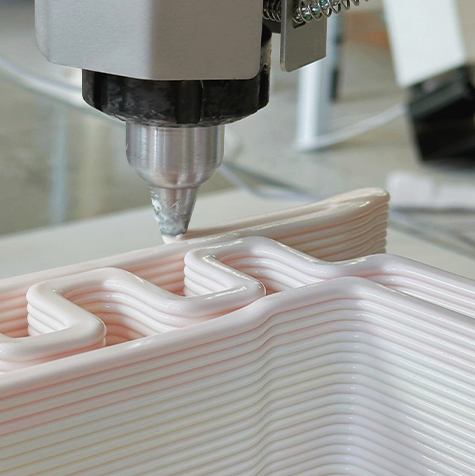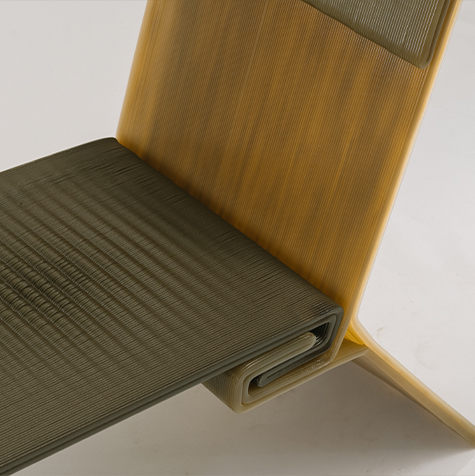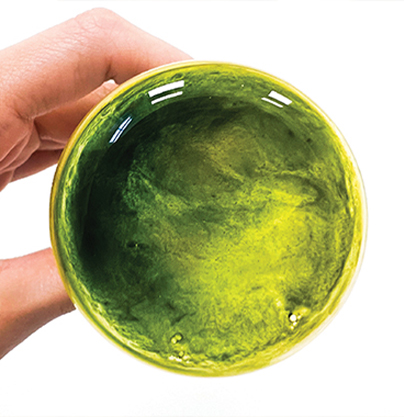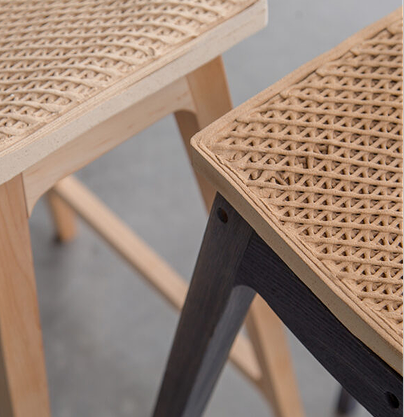Plastic waste poses a significant challenge in the architecture, engineering, and construction (AEC) industries, where it contributes to environmental contamination, pollution, health hazards, and climate change. With the AEC sector being one of the largest consumers of plastics, addressing this waste stream is critical. Global recommendations emphasize increasing the use of recycled plastics and developing high-performance products to enhance reusability, recyclability, and overall value in architectural applications.
The Waste2Lpath prototypes explore these challenges by transforming local plastic waste into functional seating prototypes using robotic 3D printing of recycled polymers. This approach enables the creation of unique, mass-customizable designs while eliminating material waste during fabrication.
By reintegrating significant waste streams like plastic into design production processes, the project exemplifies design-driven technological research, advancing high-performance, expressive, and environmentally sustainable applications.
